| |
Shahriyar Jamshidi
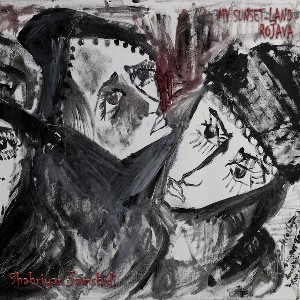
My Sunset-Land ROJAVA
(independent) - 2020
Harun Zulić
|
My Sunset-Land ROJAVA is the name of the third solo album by Kurdish-Canadian kamancheh player, composer and vocalist Shahriyar Jamshidi. Jamshidi is a well-known multicultural artist with an impressive career performing traditional Kurdish and Iranian music. His creative and masterful improvisations on the kamancheh visualize the story of Kurdistan through the mirror of Rojava (which in Kurdish means "where the sun sets"). My Sunset-Land ROJAVA is the author's dedication to the women in that northern Syrian region who fought and sacrificed themselves for freedom from Islamic State. "The sadness of this music reflects the sorrows of Kurds from tortures and massacres," Jamshidi explained to CM. "Indeed, by this music, I have tried to make a bridge between listeners and the title to awaken listeners' sympathy."
The nine pieces on My Sunset-Land ROJAVA can be placed into two categories: composed pieces and improvised pieces. The composed music ('Viyan' and 'Tears of Shingal') was created separately as pre-designed music in different times and situations, while the remaining seven pieces present the connection between the seven inherent improvisations. The improvisational portion is based on Kurdish modal music, which to Jamshidi demonstrates "the vast microtonal modes from Kurdish Iranian-Iraqi borders, through Kurdish musical ambiances and the link to Kurdish Turkish-Armenian modes."
With the opening piece, 'Viyan', Jamshidi remembers Kurdish-Iranian singer Viyan Peyman, a Dengbej (storyteller) and teacher who left her hometown and all her belongings to join the resistance in Rojava and lost her life in 2015. Jamshidi describes 'Viyan' as a "technical and rhythmic piece...the conversation between the upper and lower parts of the kamancheh and the extension of the figurative phrases in adventuring the inspiring moments, using the irregular time signature, and moving on different positions at a fast tempo speed."
The story of the fight for Rojava's land continues through other deep, meaningful titles like 'Rojhelat' or 'Amordad'. The final pieces 'Dersim' and 'Tears of Shingal' represent memories of two unfortunate events: "the Alevi-Zaza Kurds massacre in Turkey (1937-1938) [and] the genocide of Yazidis in the mount of Sinjar in Iraq." The closing 'Tears of Shingal' is a mixed theme inspired by Kurdish Yazidi musical folklore from northern Kurdistan in Turkey and Armenia.
Jamshidi outlines the album's narrative: "In my story, Kamancheh is a nomad Kurdish girl who crosses boundaries; between her stops, the new songs are born. The first metric movement 'Viyan' opens the gate for the solo performances. They continue to tell the story of My Sunset-land ROJAVA by moving through the spaces (modes) in each improvisation track until the last melancholy movement in 3/8 lands the album to the end, and Kamancheh joins the mourning with whispering a Dengbeji (storytelling) melody on the D string until fading out. Yet, Kurdistan is not free from the circle!"
The Kurdish modal music system (which is characterized by microtonal scales) is the backbone of all the musical material here. The album's technical aspects are based on the unique techniques of the kamancheh instrument itself: crossing, double stops, drone, glissando and portamento (the latter one of the primary methods for expressing emotions on solo playing).
Finally, considering that My Sunset-Land ROJAVA is inspired by the gender equality of Kurdish women who took the fight for justice into their own hands, it is essential to note that the album's cover art is Untitled. Triptych 1, visual artist and activist Zehra Dogan's painting from her Clandestine Days period (during which she spent five months in 2017 hiding out in Istanbul).
"I felt this image would be matched with my title Rojava and the elements of the story: women, the four divided lands of Kurdistan, cultural revolution in the area, and the unrest of the Kurds. With this album, I have tried to reflect the reality of recent conflicts in Kurdistan and the voices of women in the mirror of my music on the kamancheh, the sorrowful instrument whose songs pass the boundaries, wishing to transfer the cultural messages of Kurds peacefully to every listener."
|
Shahriyar Jamshidi
|
Suggestions

Union Duke
Bandits and Bridges
(independent)
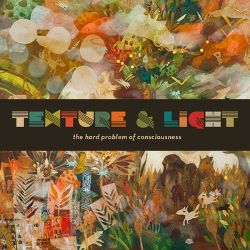
Texture and Light
The Hard Problem of Consciousness
(independent)
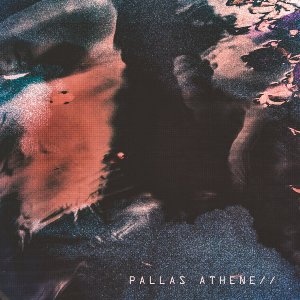
Pallas Athene
Pallas Athene EP
(independent)
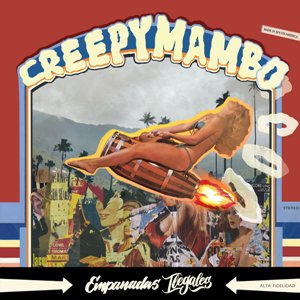
Empanadas Ilegales
Creepy Mambo
(independent)
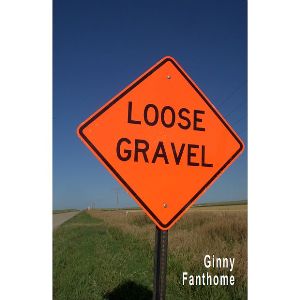
Ginny Fanthome
Loose Gravel
(independent)
|








